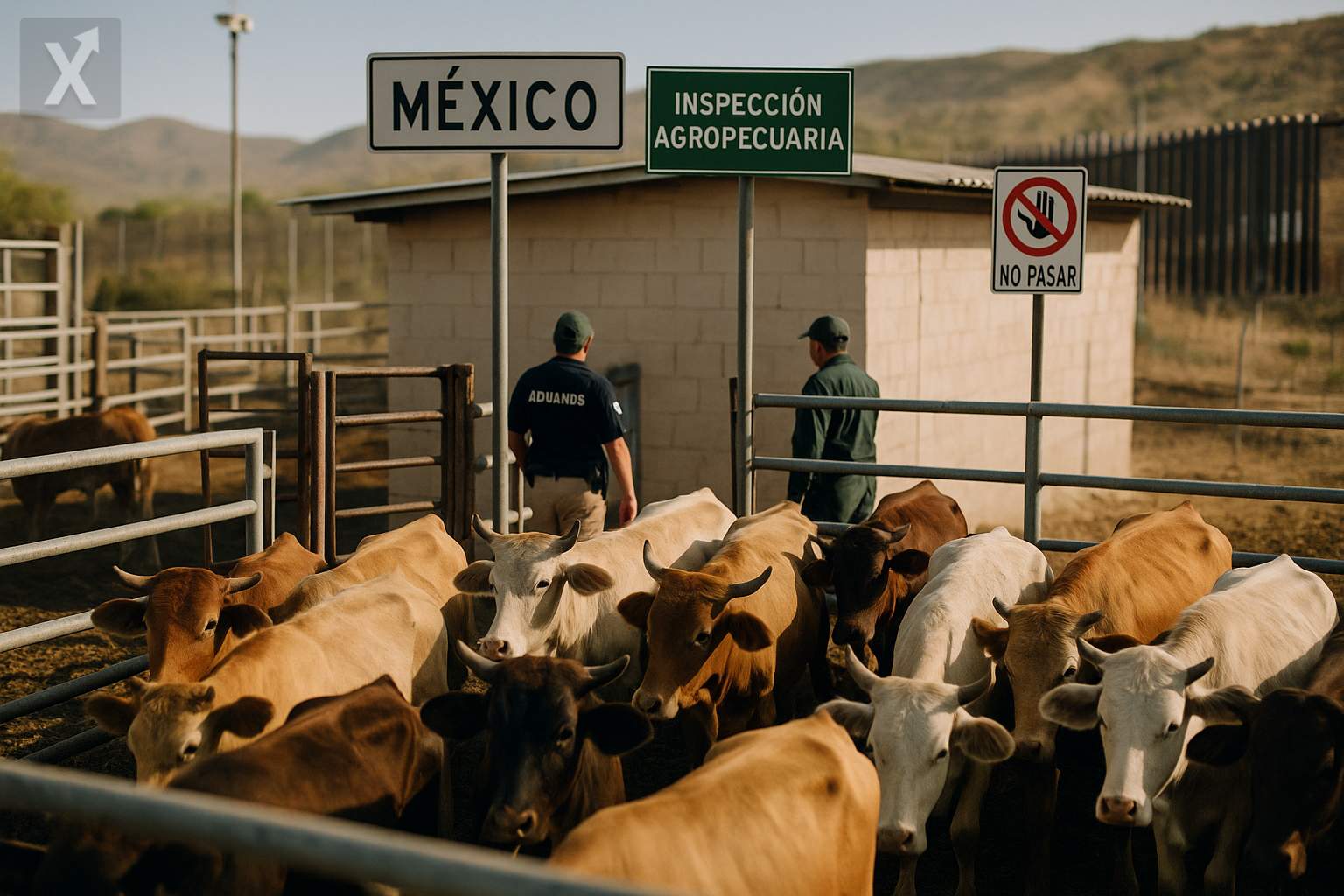United States Again Suspends Import of Mexican Cattle Due to Screwworm Outbreak

The United States Department of Agriculture (USDA) announced the immediate suspension of cattle imports from Mexico after detecting new outbreaks of the screwworm pest in Mexican territory. The measure, which affects cross-border trade through southern ports, comes in response to the recent identification of the insect in Ixhuatlán de Madero, Veracruz, approximately 600 kilometers south of the U.S. border.
The screwworm, scientifically known as Cochliomyia hominivorax, is an especially dangerous pest for the livestock sector, as its larvae infest wounds in mammals and can cause the death of animals if not detected and treated promptly. This outbreak represents a serious challenge for Mexican producers, who rely heavily on the U.S. market as the primary destination for their cattle exports.
The USDA’s decision comes just days after a partial reopening of trade was announced, following an initial suspension in May after previously confirmed outbreaks in the states of Oaxaca and Veracruz. The U.S. authority emphasized that significant progress in controlling and eradicating the screwworm in Veracruz and surrounding areas will be required before considering a reopening of cattle ports.
This measure has significant repercussions for the Mexican economy, particularly for livestock-producing regions that depend on exports as a key source of income and job creation. According to data from the Agroalimentary and Fisheries Information Service (SIAP), Mexico exports over a million head of cattle to the United States each year, translating into revenues of over a billion dollars. Interrupting this commercial flow could impact everyone from small producers to major exporters and related logistics chains.
Mexican and U.S. authorities have worked together for decades on the National Campaign Against the Screwworm, a binational program that had kept North America free of the pest for more than 20 years. However, recent outbreaks highlight ongoing challenges regarding animal health, bio-surveillance, and coordination between authorities and the industry.
Looking ahead, the reopening of trade will depend on the success of eradication efforts implemented in the southeast of the country. The use of the sterile insect technique, information campaigns, and increased sanitary surveillance will be crucial to prevent the spread to other regions and to restore the confidence of trade partners.
In summary, the temporary closure of cattle trade to the United States due to the presence of the screwworm poses a significant challenge for Mexico’s cattle industry. How the outbreak unfolds and the coordinated response of the authorities will determine the future of exports in the short and medium term, in a global context where animal health is a critical requirement for international competitiveness.





